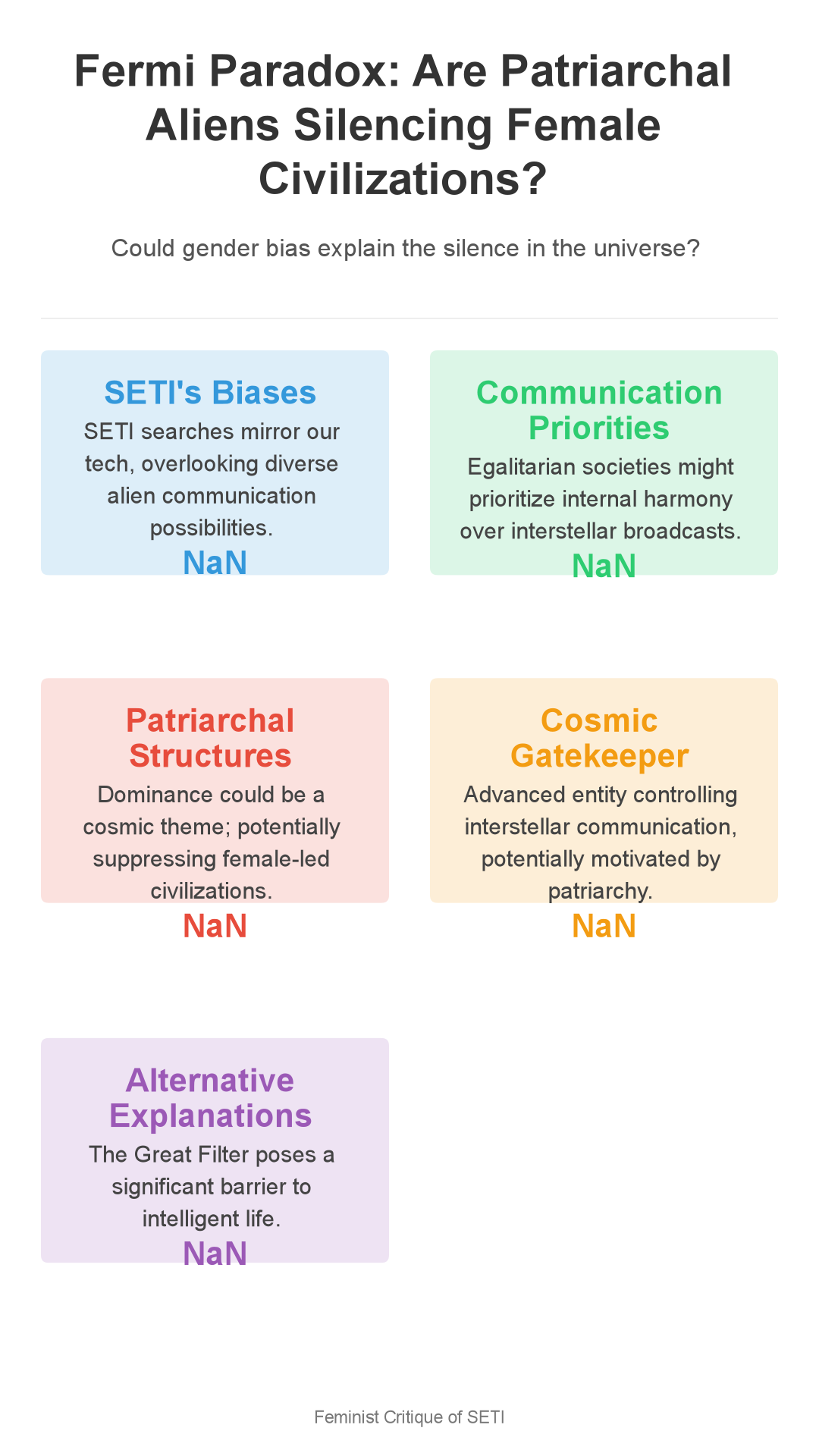
Why haven’t we heard from aliens? Beyond the vast distances, could a more unsettling reason be at play: a “cosmic patriarchy” actively silencing female-led civilizations? Prepare for a mind-bending journey! Hit that like button and follow for more thought-provoking theories!
The universe’s sheer size makes the silence deafening. This is the Fermi Paradox: the stark contradiction between the high probability of alien life and the complete absence of contact.
The Feminist Critique of SETI: Challenging Biased Assumptions
Our Search for Extraterrestrial Intelligence (SETI) is inherently shaped by our own biases. We listen for signals *we* would send, using technology *we* understand.
Examining the Anthropocentric Nature of SETI Protocols
Most SETI projects focus on detecting radio waves or optical signals – technologies relatively young in human history.

Are we limiting ourselves by assuming aliens will use the same methods?
Furthermore, our signals often broadcast information *about us* – our science, math, culture.
How Societal Biases Influence Our Interpretation of Potential Messages
Even if we detected a signal, how would we interpret it? Our understanding of language, mathematics, and even basic concepts is filtered through our own cultural lens.
Societal biases, including gender bias, could dramatically impact our interpretation.
The Possibility of Different Communication Priorities
Perhaps the most compelling feminist critique of SETI suggests that female-dominated or egalitarian societies might prioritize different communication methods or choose not to broadcast their presence widely.
A civilization focused on internal harmony and sustainability might view interstellar communication as risky, potentially attracting unwanted attention or hostile forces.
They might prioritize subtle communication within their system, or choose silence. Imagine a society where knowledge is shared through interconnected neural networks, a concept beyond our current grasp.
The Potential for Patriarchal Structures in Extraterrestrial Civilizations
While it’s tempting to imagine all alien civilizations as enlightened and progressive, patriarchal structures might be more common than we hope. Could the dominance of one sex or gender be a recurring theme throughout the cosmos?
Exploring the Universality of Patriarchal Social Structures
Is patriarchy uniquely human, or could it arise independently in other species? Some argue that biological factors, like sexual dimorphism or differences in reproductive roles, could predispose species to patriarchal structures.
However, biology isn’t destiny. Social structures are shaped by complex biological, environmental, and cultural factors.
Hypothetical Scenarios of Suppression
Imagine a patriarchal alien society actively suppressing or silencing female-led civilizations. This could range from subtle economic or political pressure to outright military aggression.
Drawing Parallels to Earth’s History
Throughout human history, women have been silenced, marginalized, and oppressed. From witch burnings to the denial of education and political rights, women have consistently faced systemic barriers.
The “Cosmic Gatekeeper” Hypothesis: A Speculative Model
This leads to the “Cosmic Gatekeeper” hypothesis, a speculative model proposing an advanced civilization (or AI) that actively controls interstellar communication.
Defining the “Cosmic Gatekeeper”
The Cosmic Gatekeeper is a hypothetical entity with the technological capability to monitor and manipulate interstellar communication.
This could involve filtering signals, suppressing technological development in certain civilizations, or discrediting/attacking those who try to communicate.
Motivations for a Cosmic Gatekeeper
What would motivate such a gatekeeper? One possibility is preventing the spread of “dangerous” ideas, including feminist principles.
A patriarchal gatekeeper might see female-led civilizations as a threat, suppressing their influence and preventing them from challenging the status quo.
Ethical Implications and Challenges of Detection
A Cosmic Gatekeeper raises profound ethical questions. Is it justifiable for one civilization to control the information and development of others? How would we detect or circumvent such a gatekeeper?
It’s possible the gatekeeper is so advanced its actions are undetectable, or it uses control methods we don’t understand.
Alternative Explanations and Counterarguments
It’s important to acknowledge that the “Cosmic Gatekeeper” hypothesis is just one explanation for the Fermi Paradox. Many other proposed solutions exist, each with strengths and weaknesses.
Acknowledging Other Solutions to the Fermi Paradox
The “Great Filter” suggests a significant barrier to intelligent life, which most civilizations fail to overcome. This could be anything from the emergence of complex life to advanced technology.
Limitations of Anthropomorphizing Aliens
One of the biggest challenges in addressing the Fermi Paradox is anthropomorphizing aliens, assuming their social structures and motivations mirror our own. Alien civilizations could be radically different.
The Importance of Diversity and Inclusivity in SETI
To mitigate biases and increase our chances of success, it’s essential to embrace diversity and inclusivity in SETI research.
This means involving scientists and researchers from diverse backgrounds, and actively seeking alternative approaches to communication and detection.
We’ve explored the Fermi Paradox through a feminist lens, considering if patriarchal biases are clouding our search, and the unsettling possibility of a “cosmic gatekeeper” silencing female-led civilizations. It’s a wild ride, right?
But what if the key to unlocking the universe lies not in powerful telescopes, but in challenging our deeply ingrained assumptions? What societal biases might be hindering our search for extraterrestrial intelligence?
Share your thoughts in the comments below!

Enjoyed this? Check out our YouTube channel for video versions!
Enjoyed this? Check out our YouTube channel for video versions!



